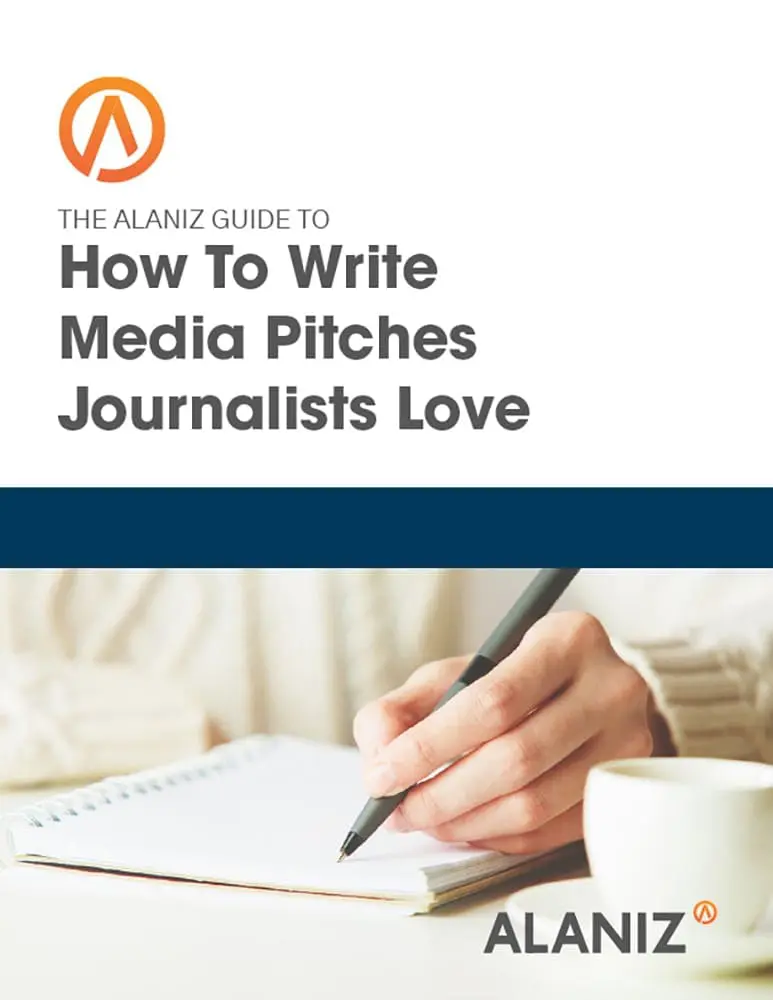In the classic book, The 22 Immutable Laws of Branding, authors Al Ries and Laura Ries make the case that public relations (PR) is the key to building a powerful brand. Their mantra is “PR builds brands, advertising protects them.”
The reasoning is that people believe what others say about a brand in third-party media more than they believe promotional material from a company. Getting lots of press coverage creates a perception of leadership and quality that advertising can’t buy. Once that perception is established, advertising protects the brand by making it very expensive for another company to try to get attention.
For more help with media relations check out The Alaniz Guide to Press Distribution.
Journalists Need You
Successful PR is the result of careful research. Media outlets need news that is relevant and valuable to their readers. PR pros know that their stories will be covered if they can find the right journalist with the right audience.
Paul Sawyers, writer for The Next Web, puts it this way: “We like pitches,” he says. “The relationship between a company and the media is a symbiotic one. On the one hand you, as a [business], want the public to read about your company in well-read publications, but also remember that we need you because you are what will ultimately give us good content.”
But the pitch and story have to be relevant not just to the journalist, but to the journalist’s readers. “The most critical things a journalist wants to know is, why, specifically, is your story relevant?,” Michael Grothaus writes in Fast Company. His colleague at Fast Company Kathleen Davis agrees. She wants to know, “What’s in it for the reader? What value are you bringing? Keep it short and readable, and give me a useful and clear subject line on the email.”
Finding the Right Journalist
So you need to connect with the right writer and the right audience. But how do you find the right journalist with the right audience?
You can do it manually, by searching for news about the industry you’re in and creating your own database of writers, publications and story topics. Getting the contact information for writers can be tricky. Some publish their emails and/or Twitter handles. Others publish neither. This method is time-consuming and isn’t always accurate. For example, a journalist may cover a story about smartphone use in Kansas City, and the beat could be either the technology or the location.
The Power of a Media Database
Enter the media database. Companies like Cision and Meltwater take the guesswork out of finding journalists that cover your industry by creating, maintaining and selling access to databases of journalists and publications that are searchable by beat, industry, geography, reach and a host of other criteria, along with the journalist’s contact information. This makes it easy to build a media list of writers, editors, bloggers and social media mavens that are recognized influencers in your marketplace.
You can also email journalists directly from the media database platforms, as well as place press releases on wire services.
But media databases are pricey. Neither Cision or Meltwater publish their pricing, a practice that usually indicates a) the sticker price is high; and b) the price is negotiable. But a ballpark figure that many have shared is around $11,000 per year for the full suite.
That’s a lot of money, especially if a business doesn’t do a lot of PR.
Rent a Media Database
One way to get around the cost of a media database is to engage a marketing or PR agency that uses one. Most agencies have multiple clients that are pursuing PR opportunities, distributing the cost of the database through multiple customers. By using an experienced marketing/PR agency you can get access to the media database and expert guidance on how to use it.
In essence, you can rent access to a media database by working with an agency that uses one. You’ll also have access to help crafting and delivering pitches from people that do it on a daily basis. It’s a bonus if an agency has experience and media contacts in your industry.




